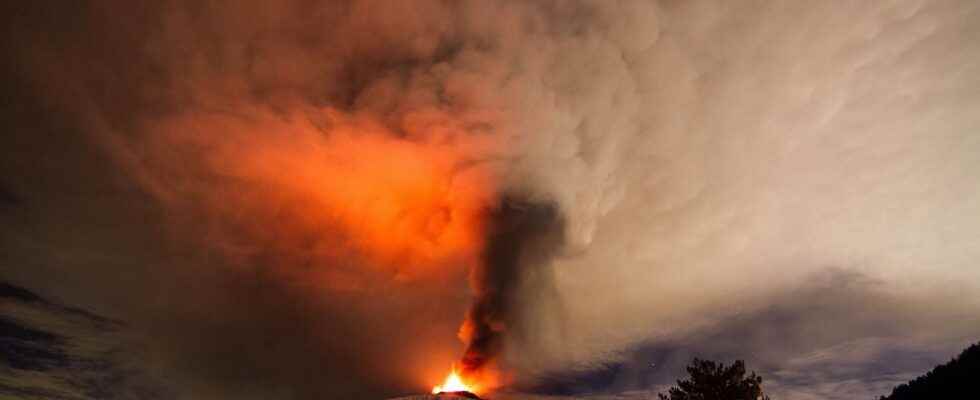Scientists at the University of Southampton studied the effects of volcanic materials on ocean chemistry at the end of the Ordovician, around 450 million years ago, in an attempt to explain the intense cooling of the Earth at that time which would have resulted in the extinction of nearly 85% of marine species. Although volcanic episodes are generally associated with periods of short-term warming, researchers suggest that interactions with the oceans could allow global cooling over the longer term, in particular thanks to the increase in the level of phosphorus in the oceans. oceans.
You will also be interested
[EN VIDÉO] The biggest volcanic eruption on Sakurajima On Sunday August 18, 2013, the Sakurajima volcano exploded. Its plume reached 5 km high, which makes this eruption the largest since 2006, that is to say since the volcano has been monitored by the Japan Meteorological Agency. © tubemediacom, YouTube
Second largest mass extinction event, theOrdovician-Silurian extinction corresponds to the disappearance of nearly 85% of species at the time, around 450 million years ago. According to the various geological witnesses of this episode, the extinction would have been marked by two distinct peaks of a few million years: the first would have been caused by a rapid global cooling, while the second would be associated with a rapid increase in sea level, combined with highly oxygen-depleted oceans.
The initial causes of this cooling are still quite debated: when some scientists evoke the development of non-vascular plants on the Earth firm (fixing large amounts of carbon dioxide), others suspect a huge meteorite impact. But, according to Jack Longman, lead author of the study published in Nature, intense episodes of volcanism could explain this period of glaciation.
His hypothesis is also supported by the identification of two periods of intense volcanism in present-day North America and China which would coincide closely with the glaciation episode. Only the volcanic eruptions are generally associated with the degassing of carbon dioxide, a strong greenhouse gas tending to warm the planet. The team then sought to determine a secondary process, linked to volcanism, which could explain the observed cooling phenomena.
Phosphorus as the main suspect
By studying the interactions between the oceans and volcanic materials, the researchers determined that the latter underwent strong chemical alterations, including the release of phosphorus and causing a phenomenon of “fertilization” of the oceans: considered as a macronutrient, phosphorus is one of the key elements of life, punctuating the capacities photosynthetic and theabsorption carbon dioxide from algae.
Thus, according to the study, an increase in the level of phosphorus in the oceans would initially have allowed the proliferation of photosynthetic algae; these, after being buried in the seabed, would have fixed atmospheric carbon dioxide in the sediment sailors, lowering the global temperature of the earth.
The hypothesis was verified by studying layers of volcanic ash in much younger marine sediments to compare phosphorus levels before and after interaction with seawater, allowing researchers to develop a biogeochemical model to understand the effects of quickly adding a wave of phosphorus on the carbon cycle.
A devastating domino effect
But these phosphorus inputs could have had even more devastating consequences: the researchers of the study indeed suspect that they could have contributed to the phenomena ofanoxia (low oxygen content) measured in the oceans at that time, via processeseutrophication (accumulation of nutrients in a given environment): in the same way as currently observed following human activities, certain plant species have proliferated at the expense of others, consuming all the oxygen present in the water and causing the death of other species.
Scientists claim that this phenomenon ofeutrophication could explain the second peak of extinction measured at the end of the Ordovician. They conclude that, if volcanic episodes can generate a short-term warming episode through the action of carbon dioxide, they can also be the cause of warming over several million years. via secondary processes.
Interested in what you just read?
.
fs11
